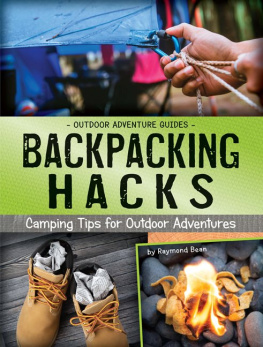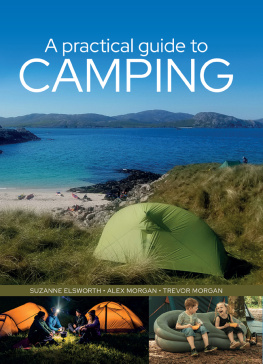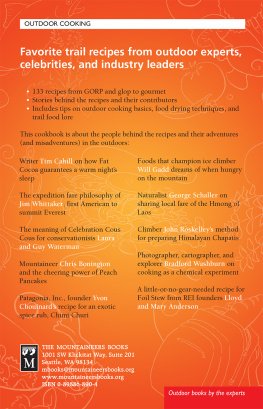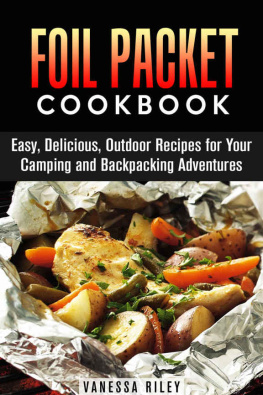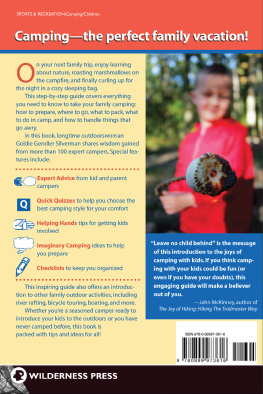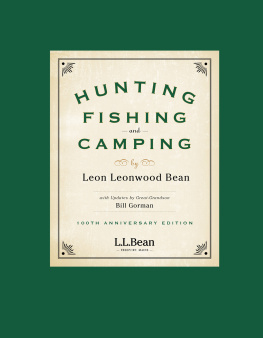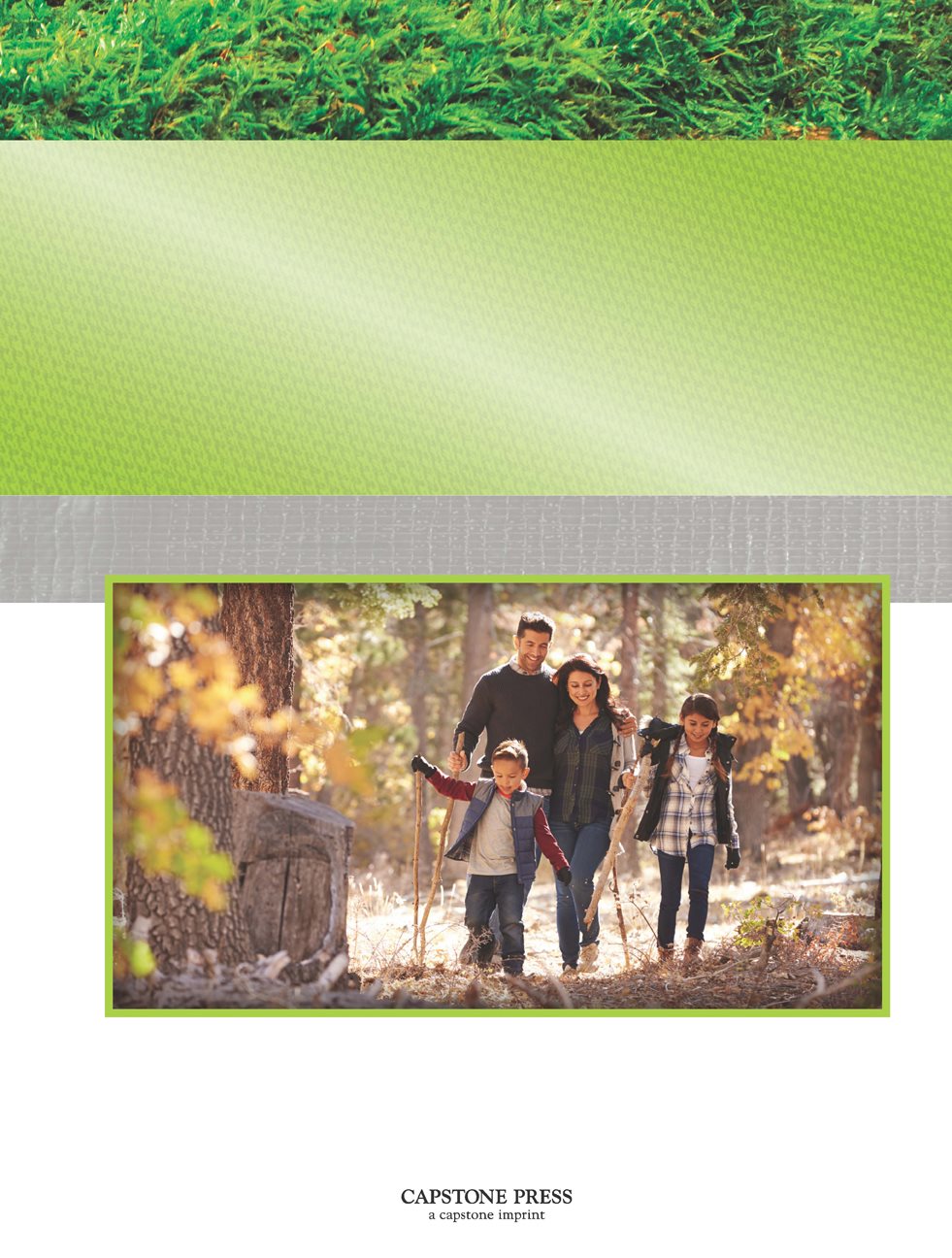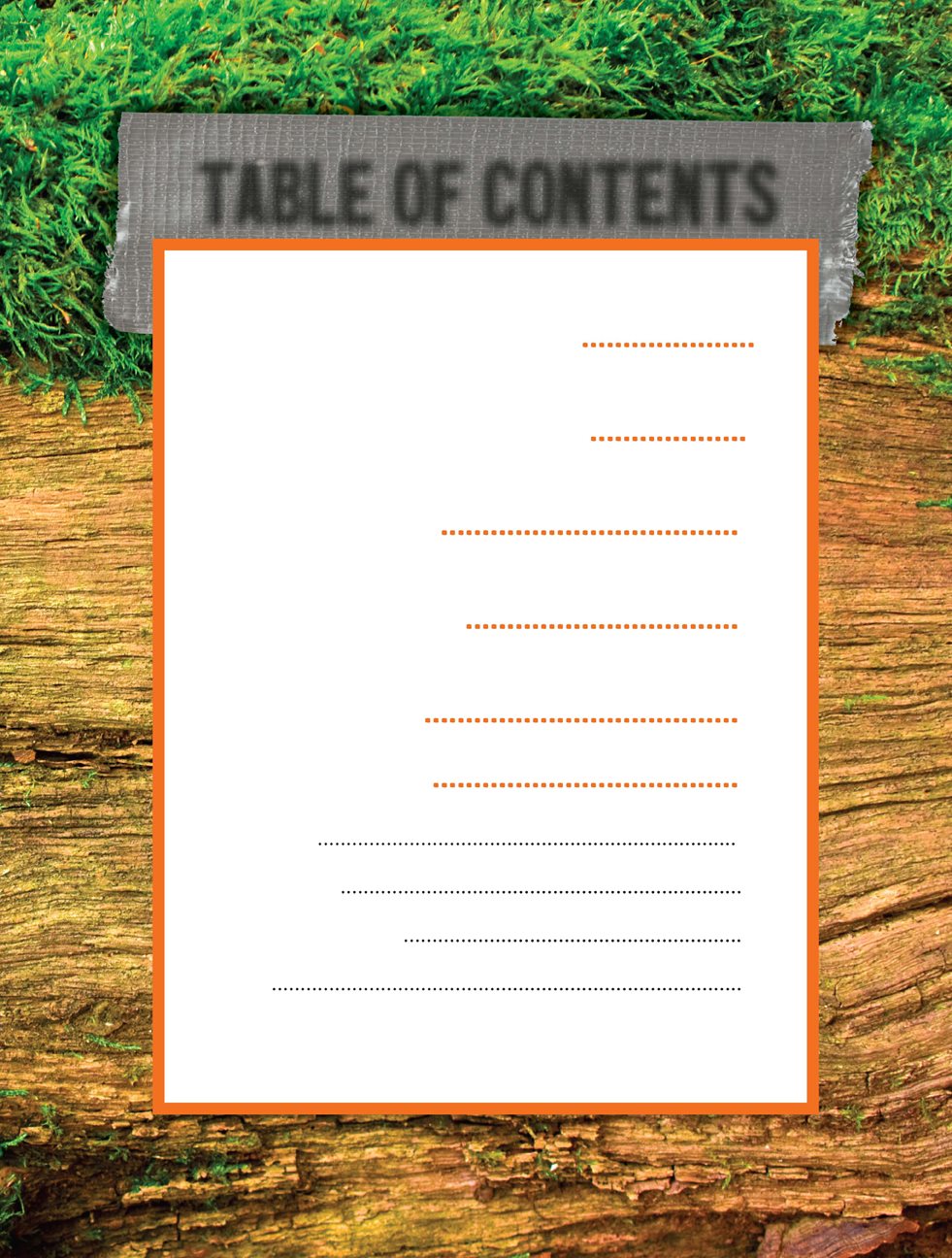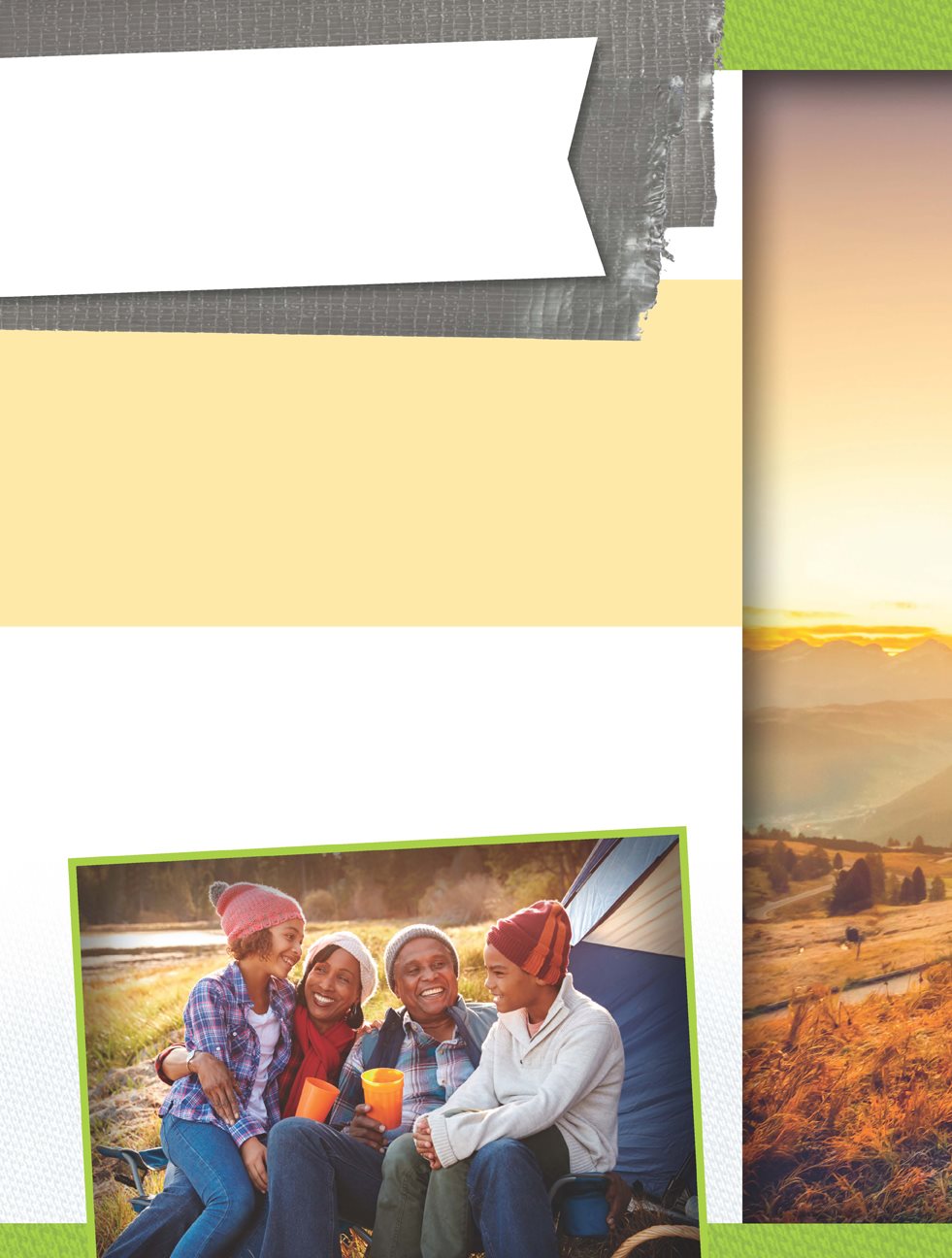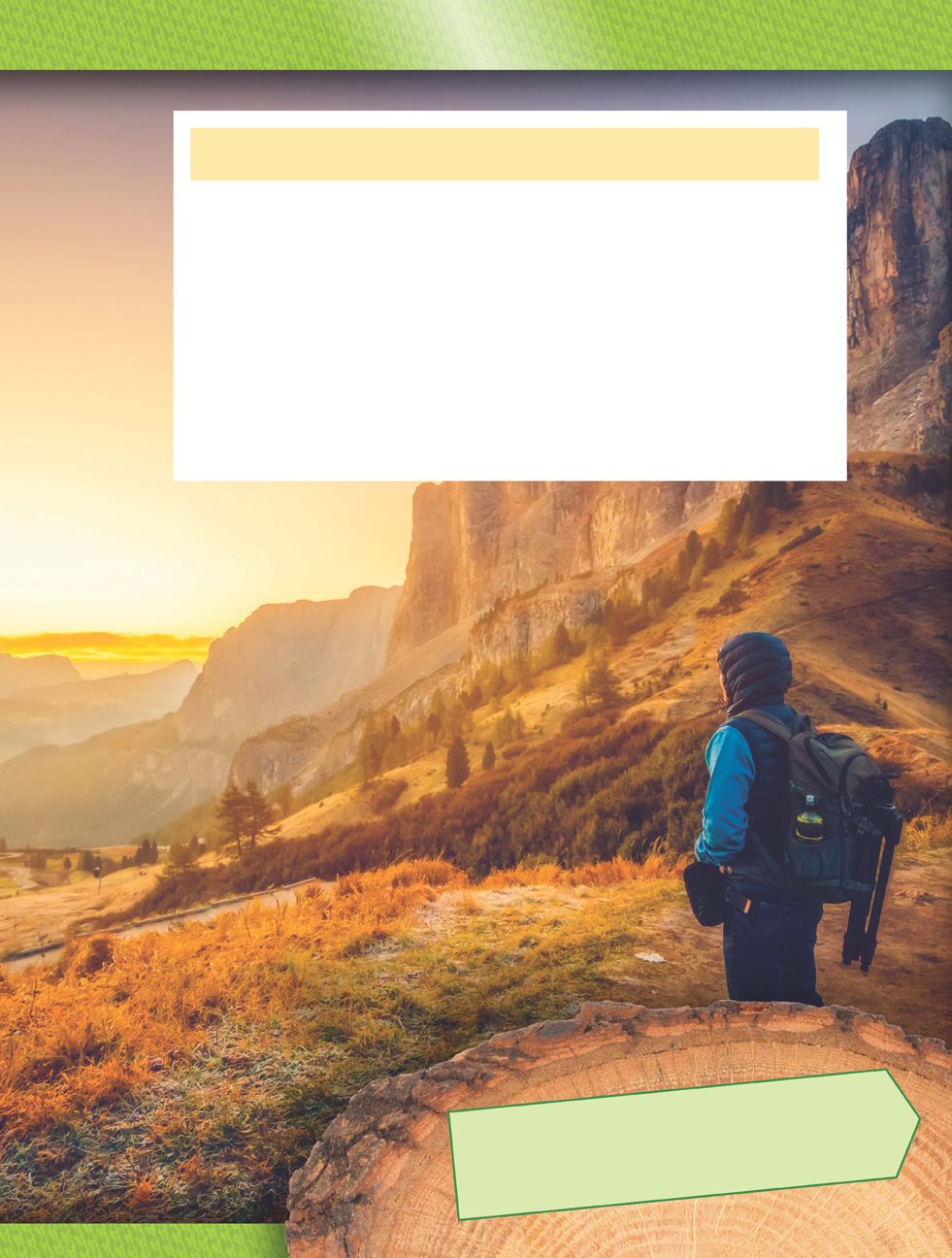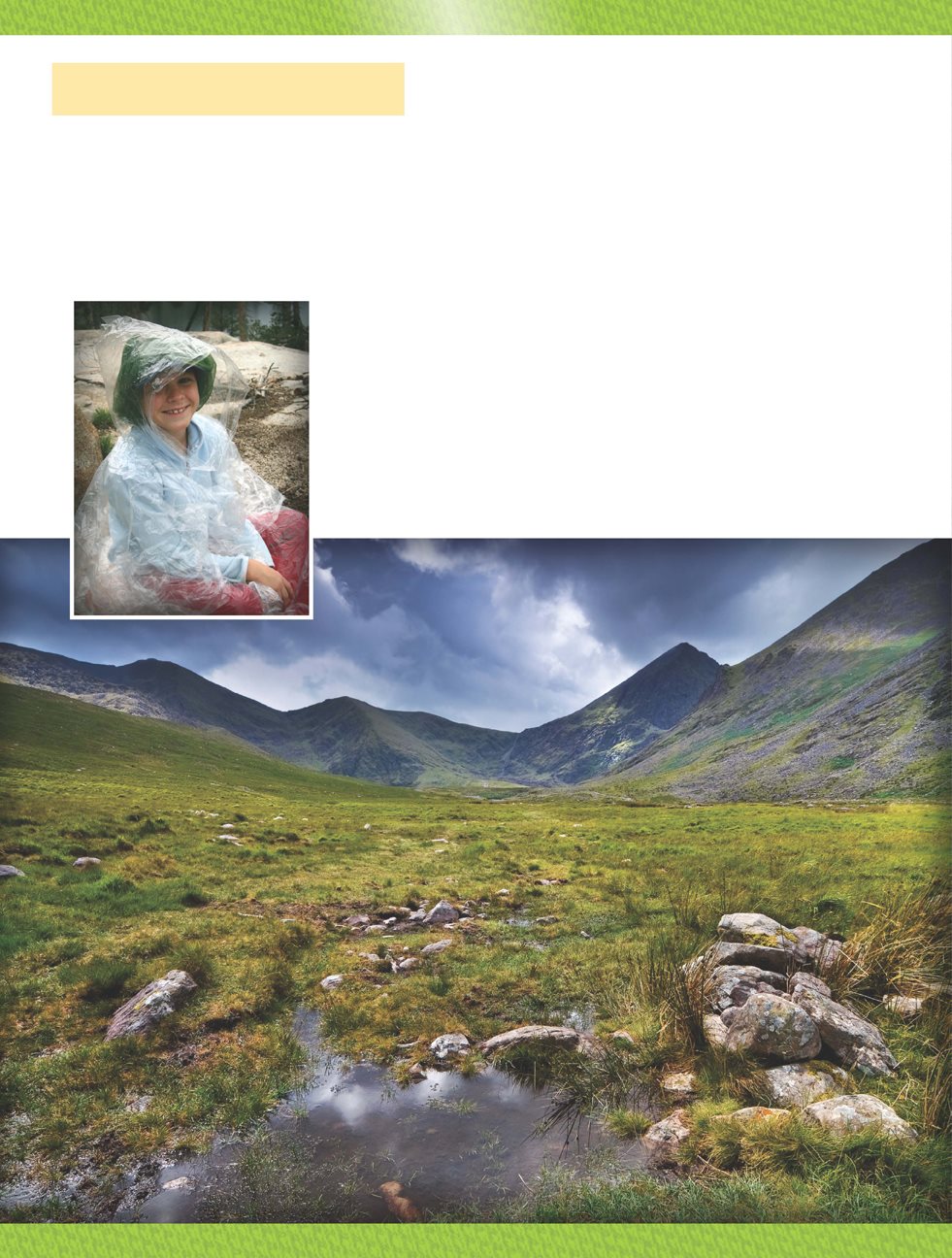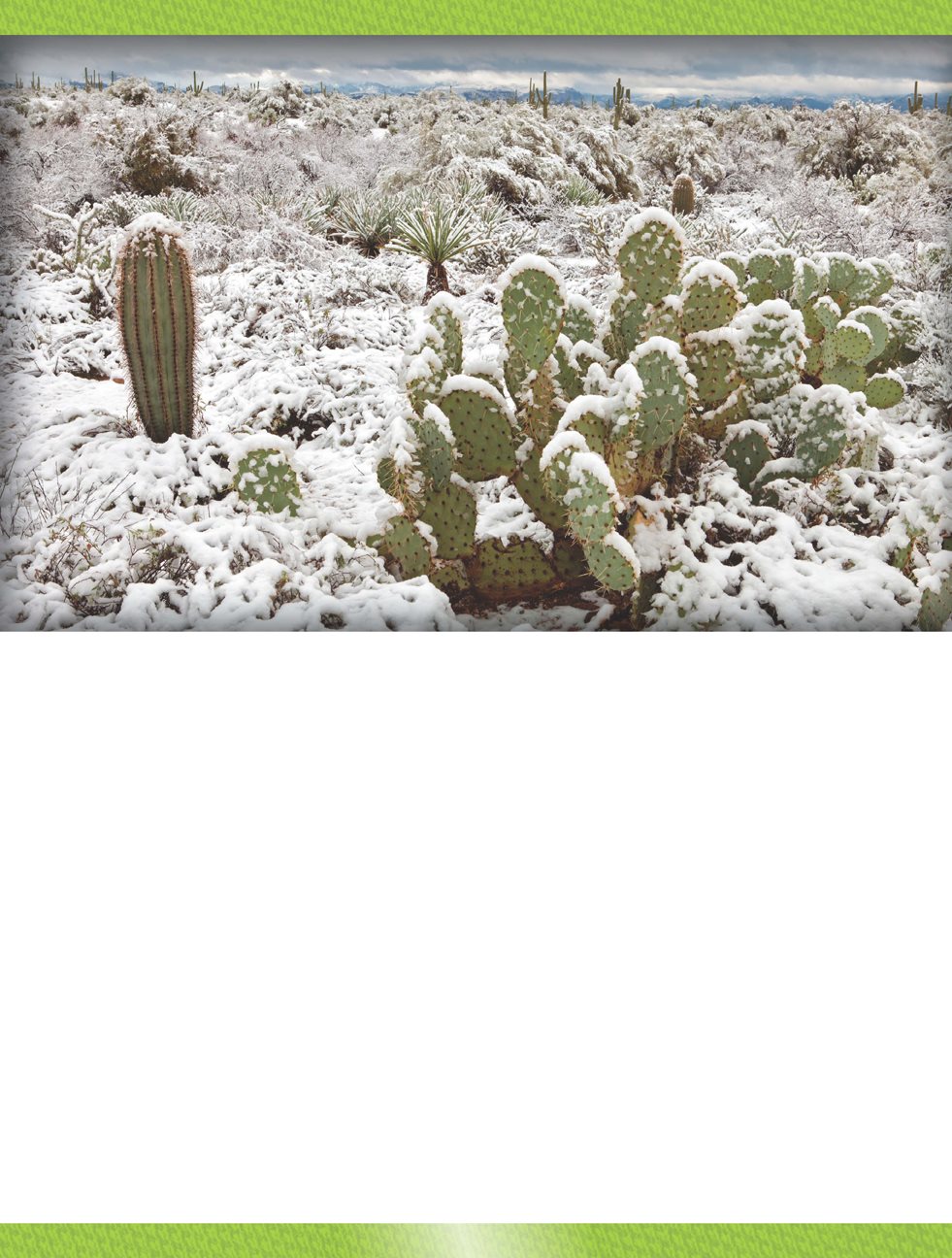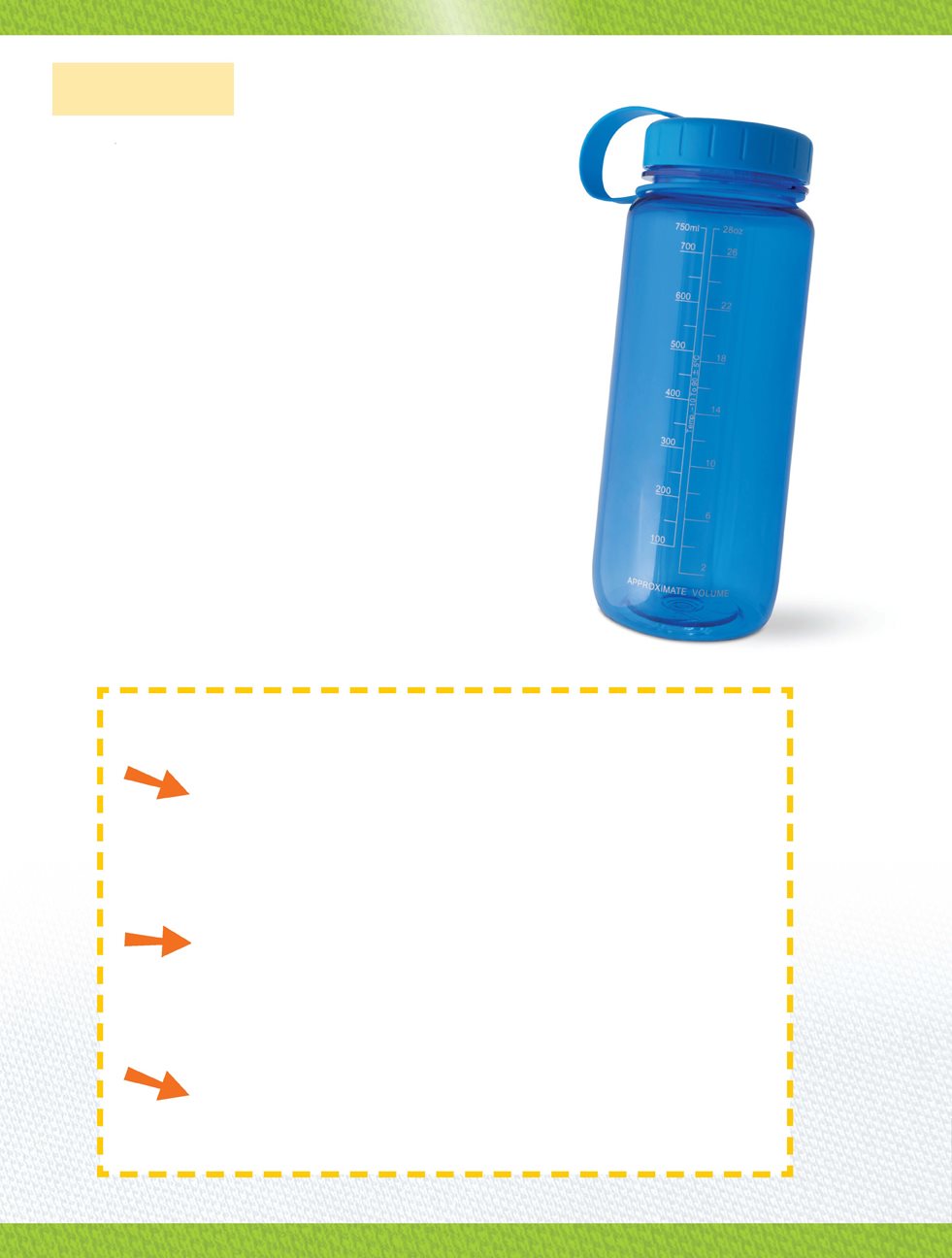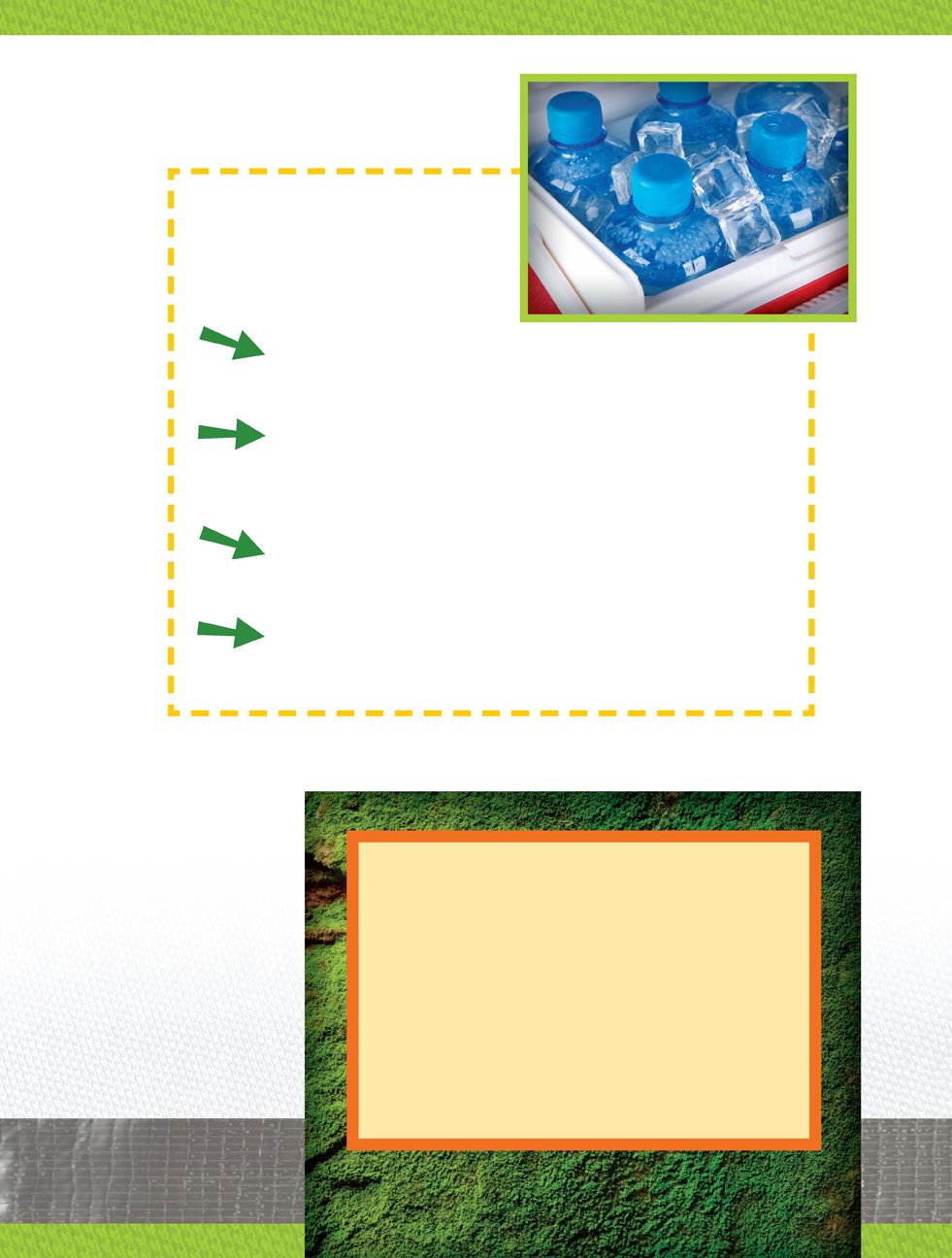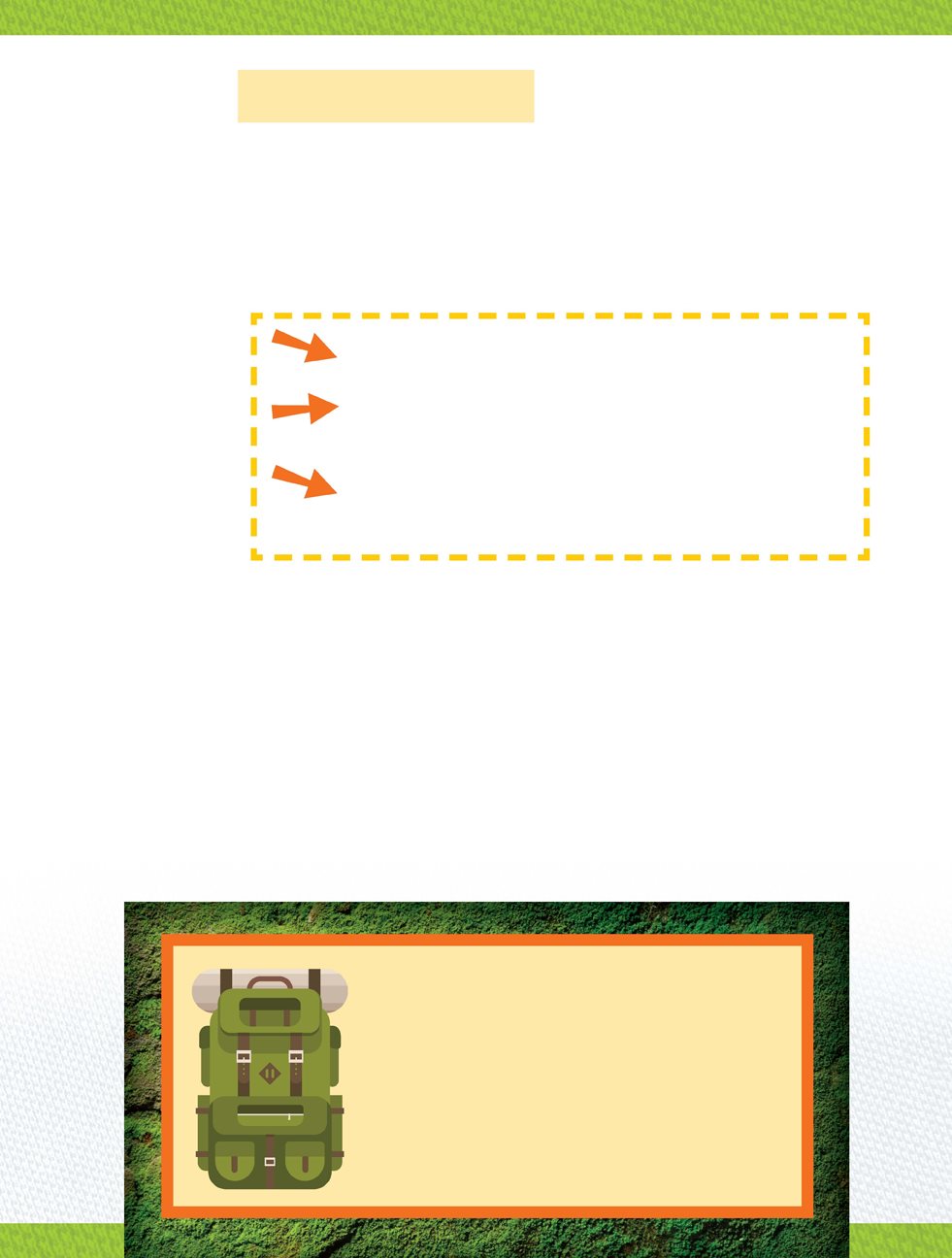- OUTDOOR ADVENTURE GUIDES -
BACKPACKING HACKS
Camping Tips for Outdoor Adventures
by Raymond Bean
Consultant: Gabriel J. Gassman Outdoor Professional
Capstone Captivate is published by Capstone Press, an imprint of Capstone. 1710 Roe Crest Drive North Mankato, Minnesota 56003 www.capstonepub.com
Copyright 2020 Capstone. All rights reserved. No part of this publication may be reproduced in whole or in part, or stored in a retrieval system, or transmitted in any form or by any means, electronic, mechanical, photocopying, recording, or otherwise, without written permission of the publisher.
Cataloging-in-Publication Data is available on the Library of Congress website.
ISBN: 978-1-5435-9031-9 (library binding)
ISBN: 978-1-4966-6616-1 (paperback)
ISBN: 978-1-5435-9032-6 (eBook PDF)
ISBN: 978-1-4966-9358-7 (eBook)
Summary: Provides useful tricks and tips for backpacking and camping, including surviving in the wilderness, practicing hygiene, cooking, playing outdoor games, and packing a backpack.
Editorial Credits
Editor: Kellie M. Hultgren; Designer: Juliette Peters; Media Researcher: Morgan Walters; Production Specialist: Katy LaVigne
Photo Credits
Alamy: Timothy Epp, bottom left
All internet sites appearing in back matter were available and accurate when this book was sent to press.
T ABLE OF CONTENTS
Words in bold are in the .
CHAPTER 1
Preparation and Planning
When people think about outdoor adventures, they often imagine scenes from movies and TV. Hikers get stranded in awful places in bad . They get cold and wet. They even have to eat bugs to survive! These survival stories are fun to watch, but they arent common in real life.
Whether youre a seasoned camper or a nervous newbie, you dont have to worry about eating bugs. Smart planning can help make your outdoor adventures safe and enjoyable.
SURVIVING VS. THRIVING IN THE WILD
Will you survive or thrive in the wild? Surviving in the wild means being uncomfortable, hungry, and stressed out. You do whatever it takes to stay alive. Thriving in the wild means being comfortable, well fed, and relaxed. It means enjoying your trip and feeling excited about the next one.
Read on for hacks and tips to help you thrive on your next adventure!
WEATHER WATCHING
Are you going for a quick hike? Or are you taking a weeklong camping trip? Either way, its not smart to just throw random stuff in your pack. You need a plan.
Learn about the where youre going. Climate is what the weather is usually like in a place at a certain time of year. What clothing will you need? Will you need rain gear or a warm coat?
In some climates, temperatures are likely to stay the same for most of the day. In other climates, temperatures can change a lot. Some deserts are hot in the daytime and cold at night. In the mountains the weather can change several times in one day. You might experience all four seasons before lunch!
Remember that weather can change suddenly. The climate might usually be warm and dry where youre going. But when you arrive, the weather that day could be cool and wet. Will you be prepared? Make sure you pack for surprises.
COMFORT
Are you the type of person who wears shorts on a snowy day? Or do you wear a winter hat on chilly summer mornings? Knowing yourself will help you hack your pack. Make sure you have what you will need to stay comfortable outdoors.
Do you usually want to be warmer or cooler? You can plan for both with one simple hack. Bring two reusable sports bottles and several resealable bags, along with your sleeping bag.
If youre always cold, plan for these heating hacks.
Fill two bottles with warm water. Seal them tight and bring them into your sleeping bag. Hug one like a teddy bear and place another at your feet. The warm water will keep you warm all night.
When you go to sleep, put the next days clothes in a resealable bag and tuck them into the bottom of your sleeping bag. When you wake in the morning, your clothes will be clean and warm.
When you feel a chill, do some jumping jacks to get your blood pumping and your temperature up.
If youre always hot, the same items will keep you cool.
Use the two water bottles in your sleeping bag, but fill them with cold water.
When you go to sleep, put the next days clothes in a resealable bag and stick them in your cooler. In the morning, youll be cooled off right away by your duds.
Wear clothes that are easy to remove, such as snap pants and zipper jackets.
Stay near water. Water tends to be cooler than the land around it.
FACT
The average internal body temperature for a human being is 98.6 degrees Fahrenheit (37 degrees Celsius). But comfort is different for every person. At the same temperature, some people might feel cold while others feel hot.
MAKE A PLAN
Do your homework. Once you know where you will be going, what more can you learn?
DAYTRIP TIPS
Make your daytrip plan at least one day before you go. Study trail maps. Are there things you are excited to see? Circle them on the map so you can find them.
Did you know that you can read reviews of park trails online? You can also look up pictures of your trail before you go.
OVERNIGHT TIPS
Longer trips need more planning. Do you need to reserve a spot at a campsite? What do you need to be comfortable? Pick a good spot on the camp map.

